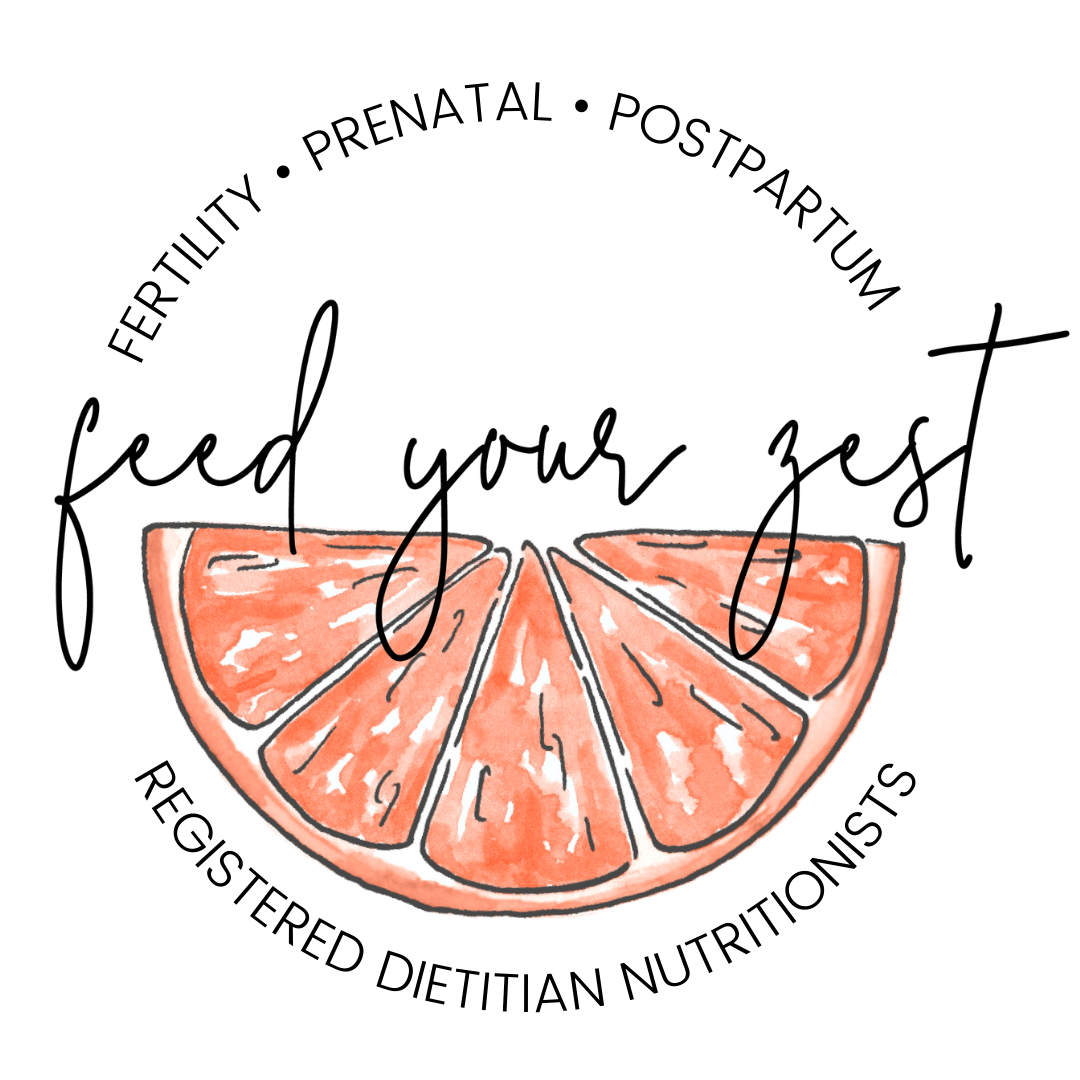Food safety in pregnancy - how careful should you really be?
by Feed Your Zest intern Natalie Ostrowski, MPH
If you read the May 5th post, What’s the deal with deli meat in pregnancy, you’ll know how we feel about infantizing pregnant people and telling them exactly what to eat during pregnancy. We don’t support it! It doesn’t honor the agency of pregnant people to make this very personal decision for themselves. At the same time, food safety is a legitimate concern due to the changes that happen to the body and immune system during pregnancy.
So, how safe do you need to be around food during pregnancy? Where is the line between safe and dangerous?
Let’s start with understanding why the risk is increased during pregnancy. During pregnancy, your immune system is weakened slightly in order to avoid rejecting the growing fetus. This means that any type of microbe (bacteria, virus, parasite, etc.) that might make you sick outside of pregnancy could have a much bigger impact on you during pregnancy. This is the case with foodborne illness—that is, sickness caused by harmful microbes in the foods that we eat. Additionally certain heavy metals (like mercury) in foods can also lead to harmful impacts.
While there are many, some of the foodborne-illness-causing microbes you might have heard about include Escherichia coli (E. coli), Salmonella, and Listeria monocytogenes. Different microbes thrive in different conditions, and therefore different foods pose different risks to consumers. For example, some microbes like cold, wet environments, so it helps to be extra careful with foods that are cold and moist, especially when our immune system is weaker.
When it comes to food safety recommendations during pregnancy, people are often told to avoid, at all costs, any foods that pose a high risk of foodborne illness. These food items usually include things like deli and cured meats, soft cheeses, soft-yolk eggs, and fish among others. The problem is, the actual risk that these foods pose is nuanced, and there are ways to lower your risk and still enjoy them. In fact, avoiding these foods all together would mean missing out on very valuable nutrients for pregnancy, like omega-3s in fish and choline in eggs.
All of these foods can play a role in a balanced pregnancy diet, it just takes a little food safety know-how! For example, just like we mentioned the ability to eat deli meat if it is heated up to 165°F (or steaming), you can also still consume soft cheese if you know what to look for. The concern with soft cheese is that it is moist, cool, and tends to be low in salt and acid. This cool, cheesy environment is like a dream come true for our ol’ friend Listeria. However, the process of pasteurization here in the U.S. requires that foods be heated up to 161°F for fifteen seconds or to 145°F for thirty minutes or more during manufacturing. This process kills any harmful Listeria, E. coli and other pathogenic microbes. So, to ensure your soft cheese is safe to eat during pregnancy, look for the word “pasteurized” somewhere on the label.
As you can see there are ways to take the factual information behind current food safety recommendations and apply them in a way that makes sense for you and your body.
This is a much longer discussion, and we walk through food safety for pregnancy in depth in our new program Fully Nourished Pregnancy! In this self-paced, online course + community you’ll find all the empowering information you need to have a truly healthy pregnancy. Not only do we cover food safety, prenatal vitamins, and all things prenatal nutrition, but we cover how to support your body and mind in pregnancy with intuitive eating. Click here to learn more!

